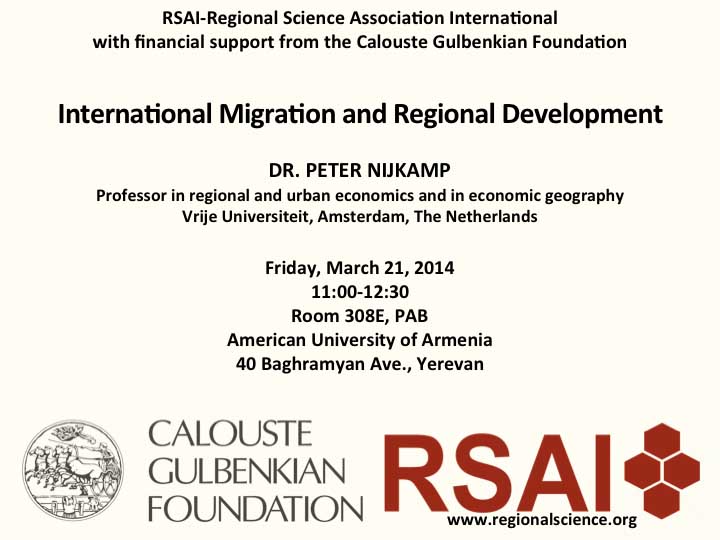
Migration Impact Assessment: New Horizons
Abstract
Most countries of the world are increasingly affected by international migration: either as senders of emigrants, receivers of immigrants, or in many cases as both. The composition of the migrant population is often very different from that of the host population in terms of demographic, cultural and socio-economic characteristics. Migrant settlement is world-wide also predominantly concentrated in specific ‘attractor’ regions, in particular in metropolitan agglomerations of the developed world. The extent to which foreign migrants exert positive or negative long-range effects on the local, regional or national economy is, however, an underresearched topic in many counties.
Broadly speaking, both sending countries and host countries have gained from two centuries of mass population redistribution and crossborder mobility is presently greater than ever before. However, in recent years there has been a growing backlash against the notion that international migration at current levels provides a net benefit to nation states. Migrant-sending countries are concerned about a ‘brain drain’ of highly qualified workers, while receiving countries worry that the ‘migrant absorption capacity’ has been exceeded, leading to detrimental economic outcomes and rising social tensions. Of course, there are clear parallels with the other dimensions of unprecedented global economic integration since 1980s, namely trade and capital mobility, of which the benefits and costs are also hotly debated.
This paper discusses examples of a range of the scientific methods that are currently available to conduct Migration Impact Assessment (MIA). It also provides various case studies that may assist in verifying and quantifying the societal consequences of international migration. We define MIA as the integrated application of scientific tools to trace the broad socio-economic impacts of cross-border migration and related policies. Clearly, the impacts of migration go beyond the socio-economic realm and include cultural, environmental, political, spiritual and strategic issues.
